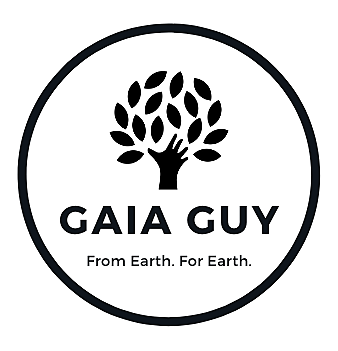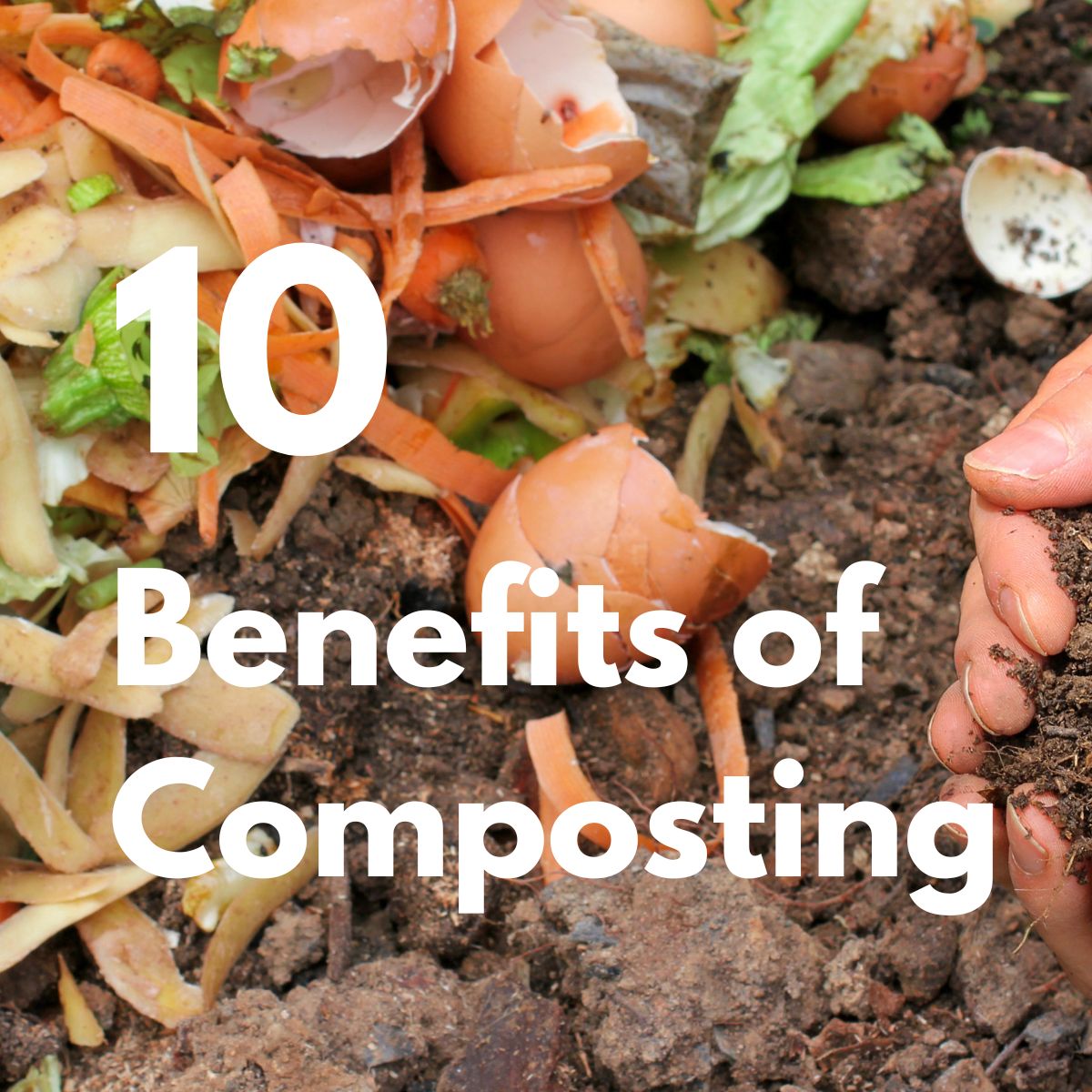What is composting?
Composting is a natural process that breaks down organic waste material into nutrient-rich soil. It involves the anerobic decomposition of organic matter such as food scraps, yard waste, and other biodegradable materials.
This process is made possible by millions of microorganisms such as bacteria, fungi, and worms that work together to transform the waste into a rich and fertile soil amendment. Here's a machine that uses microbes to breakdown food waste into compost unlike those others which seem to just dehydrate food waste.

Why is composting important?
Composting is important, because it reduces the amount of waste sent to landfills, which helps reduce greenhouse gas emissions. Composting also helps improve soil quality, promoting healthy plant growth and reducing the need for chemical fertilizers.
Furthermore, composting reduces the use of water and energy required to transport and process organic waste. By composting, we can create a closed-loop system where waste is transformed into a valuable resource, benefiting both the environment and our gardens.

Environmental Benefits of Composting
Composting has numerous environmental benefits. By diverting organic waste from landfills, we can drastically reduce the amount of waste that is sent there. When organic waste decomposes anaerobically it releases methane gas which is a super potent greenhouse gas.
Composting improves soil quality and structure. It releases nutrients that are essential for plant growth. By adding compost to soil, we can improve its structure and nutrient content, leading to improved soil quality.

The bonus here is that by using food waste to make compost we reduce the need for chemical fertilizers.
Plants grown in soil that has been amended with compost are often healthier and more robust. This is because compost provides a wide range of essential nutrients, micronutrients, and beneficial microorganisms that help to support plant growth.
Here's a machine that makes composting with microbes very easy indeed.
With all the flooding these days and drought we want to add compost to all types of soil as it can help to retain moisture in soil, reducing the need for watering and leading to reduced water usage.
Read: The Health Benefits of Gardening

“The infographics above come from the Institute for Local Self-Reliance (www.ilsr.org), a national nonprofit organization working to strengthen local economies, and redirect waste into local recycling, composting, and reuse industries. It is reprinted here with permission.”
Economic Benefits of Composting
Composting not only benefits the environment and our health, but it also has economic benefits. By cutting the amount of waste sent to landfills, cities can save money on waste management costs and landfill fees.
Additionally, composting can increase crop yield and profits for farmers by providing nutrient-rich soil. In fact, according to a study by the University of California Cooperative Extension, compost use increased almond yields by 20% and reduced irrigation water usage by 30%. This is because compost improves soil quality and helps plants retain water more efficiently.
Composting can also increase property values. Homes with well-maintained gardens and healthy plants are more attractive to buyers and can sell for a higher price. Plus, composting can save individuals money on gardening expenses by providing a free and natural source of fertilizer.

10 Benefits of Composting Summary
- Reduces landfill waste
- Decreases greenhouse gas emissions
- Improves soil quality
- Decreases use of chemical fertilizers
- Increases plant growth and health
- Reduces water usage
- Improves overall health by reducing exposure to chemicals and air/water pollution
- Reduces waste management costs and landfill fees
- Increases crop yield and profits
- Can be creatively used in gardening, landscaping, and more
What is International Compost Awareness Week?
International Compost Awareness Week (ICAW) is an annual event that aims to raise awareness about the importance of composting and its benefits to the environment. It is celebrated during the first full week of May each year.
Read: What is Plastic-Free July?
ICAW was first celebrated in Canada in 1995 and has since grown to become an international event celebrated in countries such as the United States, the United Kingdom, Australia, and many others.

There are many ways to participate in ICAW, including attending composting workshops, volunteering at local composting facilities, and spreading awareness through social media and community events. Some communities even organize compost giveaways or offer discounted composting bins during this week.
Participating in ICAW is a great way to learn more about the benefits of composting and how you can make a positive impact on the environment. So mark your calendars and join the celebration of International Compost Awareness Week!
The winner of the ICAW 2023 Video Contest! A 11-year-old from Argentina made this. She participated because since she was a little girl she has been separating waste. She thinks it's weird to throw a banana peel in the trash. The concept of her video is that composting is circular.Video Compost (ICAW 2023 Video Contest) from Magna on Vimeo.
Composting is an easy and effective way to reduce waste and benefit the environment. If starting your own composting system sounds daunting, there are local compost businesses that can take care of it for you.
These businesses will collect your food and yard waste, compost it, and return the nutrient-rich soil to you. This is a great option for those who want to compost but don't have the time or space to do it themselves.
Start composting today and see the difference it can make!
If you found this interesting you may also like to read about some simple steps you can take to go zero waste too!











